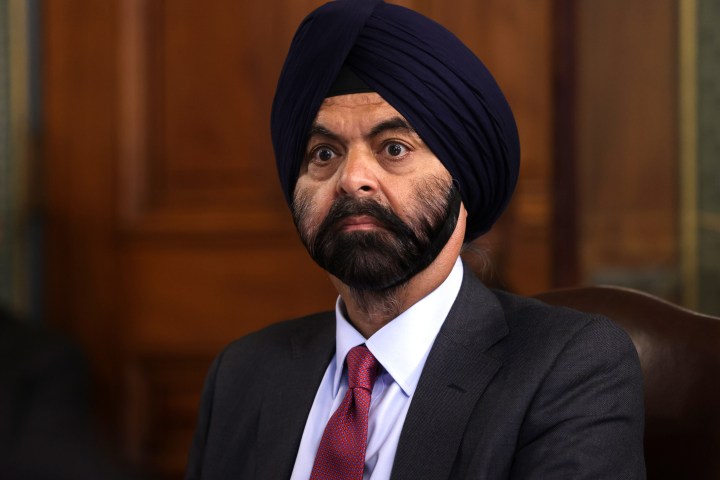
Climate change is high on the agenda as the World Bank gets a new president
Climate change is high on the agenda as the World Bank gets a new president

The World Bank is getting a new president. Ajay Banga, the former CEO of Mastercard nominated by the Biden administration for the position, is expected to be selected by the bank’s board on Wednesday.
The outgoing president, David Malpass, was nominated by the Trump administration and has taken a fair amount of criticism for downplaying the link between fossil fuels and global climate change.
Banga is expected to turn more of the Bank’s attention to climate change, and to provide more resources to poorer countries dealing with its impact.
Last year, the World Bank Group delivered almost $32 billion to fight the effects of climate change – more for developing countries than any other multilateral funder.
It’s a tall task, said former World Bank treasurer Afsaneh Beschloss.
“A number of these countries are going to disappear into oceans,” Beschloss said.
But the Bank’s process can be slow. Funding a project can take up to seven years, according to Beschloss, who is now CEO of Rock Creek Group. With a problem as urgent as climate change, she said, that’s not nearly fast enough.
“I see no reason that it can’t bring down the time it takes from project preparation to actual disbursement,” Beschloss said.
Ajay Banga will also be under pressure to increase the amount the World Bank spends on climate projects. Beschloss says trillions are needed given the scope of the problem.
That kind of money would mostly have to come from the U.S. and EU, said Duke lecturing fellow Lee Reiners.
“Budgets are strained,” Reiners said. “And so I just don’t think it’s politically feasible right now to ask the members to pony up more to address climate change.”
Treasury Secretary Janet Yellen recently made it clear that the U.S. won’t be pushing for more spending.
Banga will also have to deal with countries that bristle at the idea of taking on World Bank loans for projects that reduce their emissions, according to Charles Kenny, a senior fellow at the Center for Global Development.
“The poorest of the World Bank client countries are not responsible for [the] climate change problem pretty much at all,” Kenny said. “So they shouldn’t be taking the lead on mitigation.”
As he prepares to take the helm, Banga has suggested tapping into more private capital — and even philanthropy — to help the World Bank do more with the resources it already has.
There’s a lot happening in the world. Through it all, Marketplace is here for you.
You rely on Marketplace to break down the world’s events and tell you how it affects you in a fact-based, approachable way. We rely on your financial support to keep making that possible.
Your donation today powers the independent journalism that you rely on. For just $5/month, you can help sustain Marketplace so we can keep reporting on the things that matter to you.

















